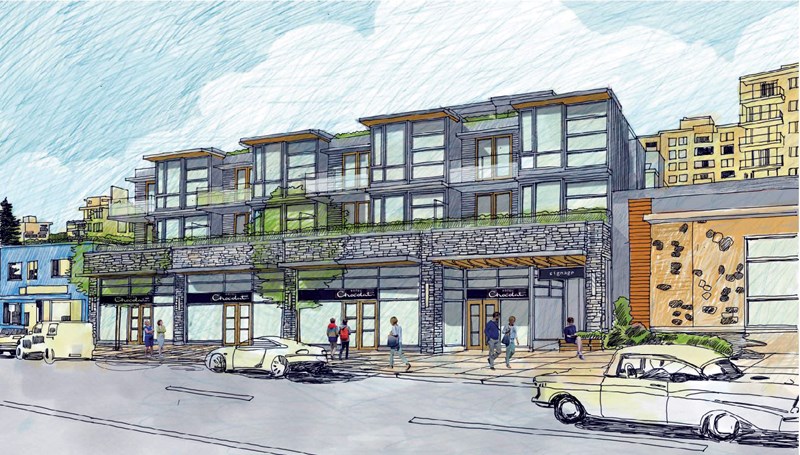Editor's note: This reader submission has been revised since first posting to clarify the letter-writer has quoted from a news report of a council meeting and not Coun. Nora Gambioli's direct comments at that meeting.
Dear Editor:
Re: WV OKs New Ambleside Project, Sept. 24 news story.
West Vancouver council unanimously approved a mixed-use building for 1327 Marine Dr. after the developer revised their original design to comply with zoning height limits. However, Coun. Nora Gambioli was reported to be deeply disappointed that public art and environmental components were eliminated, as the news story states, “to satisfy the needs of a small group of neighbours” – a statement that belittles the many immediate stakeholders who put in considerable time and effort to ensure their concerns were addressed. Coun. Gambioli believes that those who wish to adhere to the “status quo” (read: current zoning) are “ignoring the community’s challenges and contributing to the future lack of resilience and sustainability of West Van.” Coun. Gambioli is willing to throw residents under the bus, so to speak, if that bus is propelled by clean energy.
What wasn’t mentioned is a Leadership in Energy and Environmental Design silver standard was achieved and the design will accommodate solar panels that, according to the architect, can easily be installed in the future. Further, the original design with rooftop patios and access structures, was not exactly a “green” roof. Eliminating the rooftop structures will also reduce the cost of the residential units. There was no discussion of what it would cost to include an actual “green” roof similar to the one on the Shell station next door. Although the architect suggested at an earlier information meeting that it would be too expensive unless a height variance was granted, he was unable to say, even approximately, what it would cost. It strikes me that if a gas station/convenience store can do a green roof, then it shouldn’t be unduly expensive, but that detail was never explored.
If green roofs, solar panels, a specific LEED standard or public art are important to the community, they should be base requirements, enshrined in our official community plan so they’re not just aspirational. This is very much an issue with the Marine Drive local area plan – we have many aspirations for future development in this area, but nothing is enshrined. Instead, district staff will be negotiating for community assets on a development by development basis, making the process uncertain and onerous for both developers and residents.
How we achieve desired amenities should not jeopardize other values, especially livability (daylight, views, privacy, noise, etc.), which is paramount to residents as current and past OCPs attest, and continues to be, as demonstrated by neighbour feedback regarding 1327 Marine. In fact it is so important that residents are prepared to sacrifice green roofs, solar panels and public art to protect livability. Councillors who refuse to acknowledge and accept this priority are out of touch with public sentiment.
One of the speakers who was pleased with the final design quoted the website of Coun. Peter Lambur (a trained architect and urban planner), which says: “Many residents do not feel their opinion counts in decision-making about projects that affect them when in fact it should be the only thing that does.”
Coun. Craig Cameron disagreed, inferring that an overwhelming community need takes precedence.
I suggest defending unwelcome spot-zoning with the argument that it’s for the greater good of the community is an impoverished view. Based on Coun. Lambur’s resounding win in the last byelection it would seem that many others feel the same way.
We can build a healthy, sustainable community that reflects our values and vision. The key is that one value should not be at the expense of another. To say: it can’t be done, or it’s the price of progress, is a cop-out. If the price of progress is compromised livability, the price is too high. Residents expect our elected officials to establish policies that reflect and uphold all our values. It may be challenging, but it can be done.
Melinda Slater
West Vancouver
What are your thoughts? Send us a letter via email by clicking here or post a comment below.



